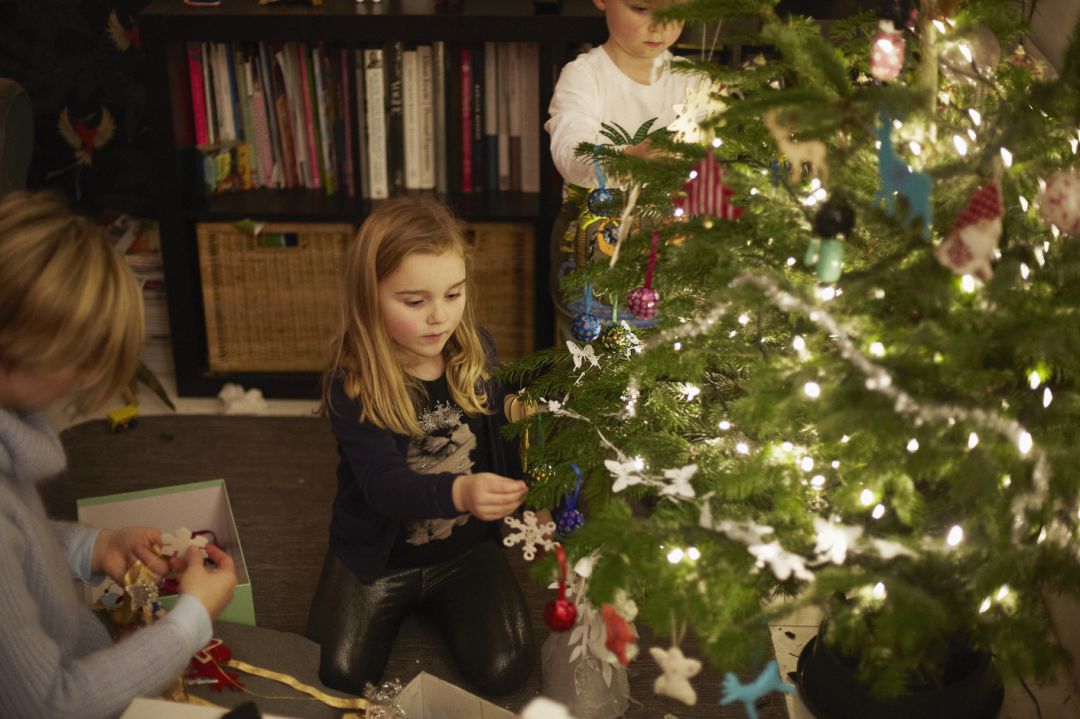Is it possible to have a truly happy Christmas?
Yes, says psychologist Ilona Boniwell – if you focus on two simple things: giving and gratitude

To paraphrase the famous song, I’m dreaming of a family Christmas, and I don’t mind if it is white or grey. I do mind however, that it all works out well for everyone.
Last Christmas, our teens set up a casino in the living room, dressed up as croupiers, and had the adults as the guests. Great in theory, but when the teens disagreed on the rules, arguments ensued and Christmas was pretty much ruined.
The previous Christmas, one of the teens made a fuss over receiving a ‘wrong’ type of camcorder for a present. The Christmas before that, Hugo, my stepson, had a virus and my husband spent most of the day taking care of him. As Hugo started to feel better, we stepped out onto the terrace wrapped in blankets, sipping mulled wine, and saw Flip, our dog, collapsing into the pond having seizures. Flip was gone before the festivities were over, diagnosed with incurable brain cancer.
You won’t be too surprised if I tell you that I’m wary of Christmas. So how can we have a happier Christmas this year? For me, the two secrets are ‘giving’ and ‘gratitude’.
Research has found that doing kind deeds for others not only boosts your mood temporarily, but also leads to long-lasting happiness, as well as making other people feel good, too. Carrying out kind acts makes us feel more confident, in control and optimistic about our ability to make a difference. It may make us more positive about others and enable us to connect with them better, which also contributes to our happiness.
As a child, you probably remember having to write thank-you letters to friends and relatives who gave you presents. As an adult, this is probably not something you do as frequently, if at all. It’s not that you’re not thankful for the things you have in life, just that you don’t often stop to think about it.
In fact, expressing your gratitude for something or someone, whether verbally or in writing, is one of the simplest but most effective ways of increasing your happiness. There is overwhelming evidence to show that people with a grateful disposition are more enthusiastic, joyful, attentive, determined, interested, helpful, optimistic and energetic than those who aren’t. Grateful people have also been shown to be less depressed, anxious, lonely, envious and materialistic. So if you want a tried-and-tested method to increase your happiness, start counting those blessings.
There are numerous ways to express your gratitude, including the ‘Gratitude Visit’, which advises you to write a letter to someone who you feel grateful to and read it out loud to them.
This year, I might put some blank cards by the Christmas tree for my family to write thank-you messages to each other. Then we can hang them on the tree and read them out loud on Christmas Day. Let’s just hope it all works out! If it doesn’t, I’ll have to take refuge in ‘three good things’, an iconic positive psychology technique that prompts us to be grateful for the things that went well. Given that its positive effects last as long as six months, it might keep me going until the summer.
More inspiration:
Read Positive Psychology In A Nutshell (McGraw Hill Education, £12.99)
Browse randomactsofkindness.org
Visit positran.co.uk and click on ‘Strengths cards’ for an original gift
Log on to Santa who? by Sam Cleasby on LifeLabs
Photograph: plainpicture/Cultura









